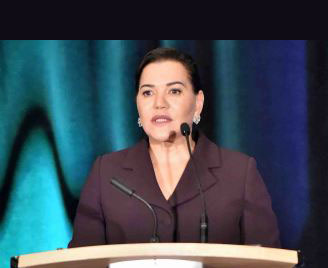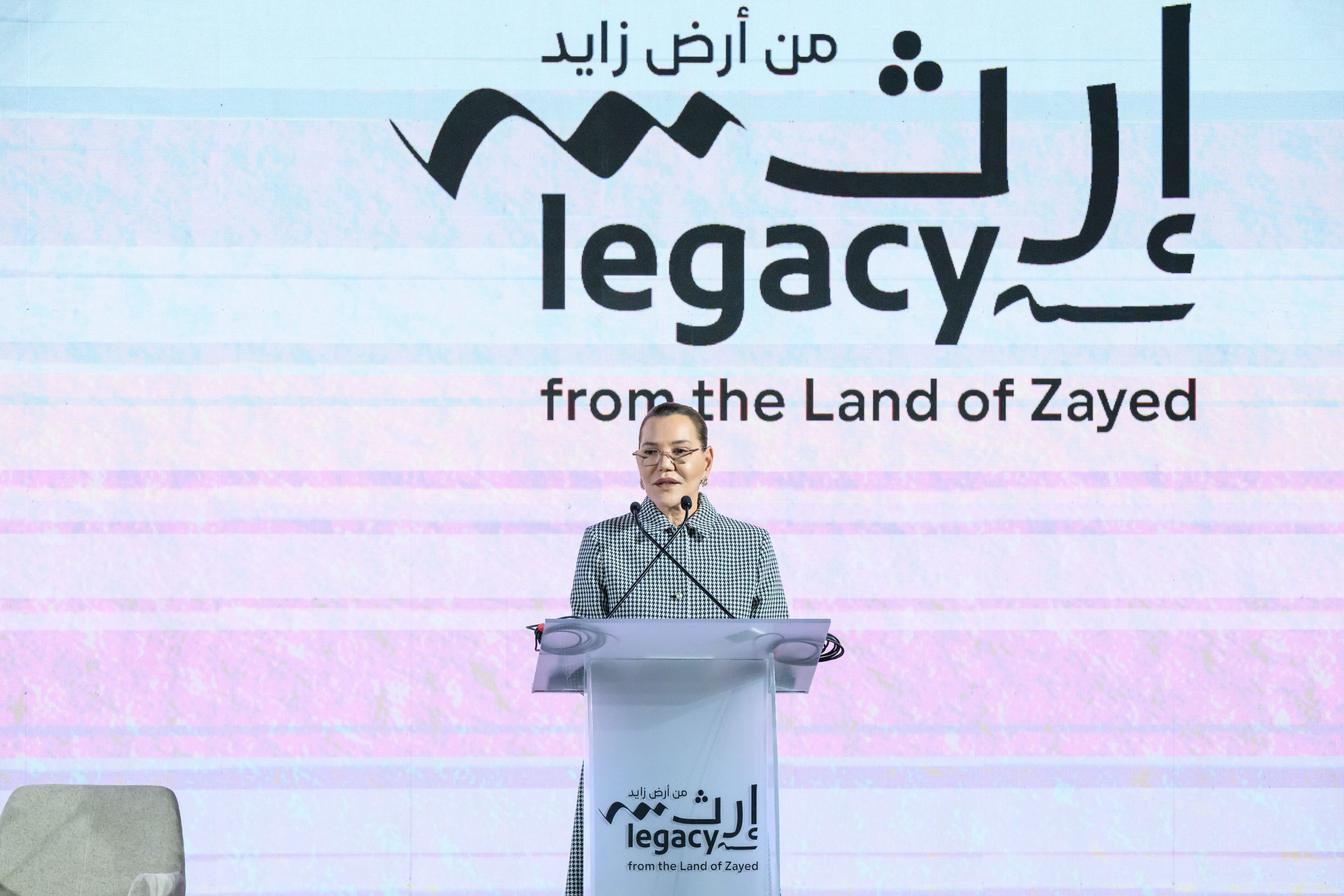
Today’s conference, one of the periodic meetings held by the Organization, provides a good opportunity to take stock of environmental challenges and to go ahead with consultation and the exchange of experiences on the issue of climate change, its consequences and risks, which pose a real threat to all countries across the globe, including Muslim sister nations.
Ladies and Gentlemen,
It is a fact that climate change, which is affecting the entire globe, is one of the most crucial environmental issues today since it impacts directly a number of vital sectors, such as agriculture, transport, water and natural resources.
Nevertheless, as the world seeks to face up to climate change, guaranteeing food security remains one of the greatest challenges facing humankind.
For this reason, we must think hard about developing sustainable mechanisms and taking effective measures to address this growing climate issue, which is not only challenging climate experts but is, above all, a real problem for current and future generations.
At the same time, we should strive harder to come up with integrated strategies likely to ensure food security and preserve biological diversity by reconsidering existing policies in all the sectors concerned.
Your Excellencies,
Ladies and Gentlemen,
In recent decades, as is the case in other Muslim countries, there has been an economic boom in Morocco in a number of key socioeconomic sectors, which has resulted in countless negative impacts on the environment.
Realizing the seriousness of the situation, I have made environmental protection one of our top national priorities in a bid to tackle environmental degradation. As a result, in recent years, Morocco has embarked on an ambitious course of action which has enabled us to mainstream sustainable development principles in our development policies in all sectors.
This approach has had an impact on Morocco’s institutional, legislative and financial systems. Consequently, the right to a safe environment in a context of sustainable development was enshrined in the 2011 Constitution with a view to striking a balance between the requirements of development and the preservation of the quality of the environment we live in.
In this regard, my country has adopted a National Charter for the Environment and Sustainable Development so as to capitalize on achievements and ensure the mainstreaming of environmental concerns and climate change in all development programs and policies.
The 2016-2030 National Strategy for Sustainable Development adopted recently was prepared in consultation with all national stakeholders, including the government, the private sector and civil society. It clearly reflects our country’s determination to continue its efforts to promote green sustainable development.
This strategy aims, in particular, to lay the foundations for a comprehensive green economy by 2020, improve natural resource management and development, support the conservation of biodiversity and revamp governance in the area of sustainable development.
To make sure renewable energy becomes the bedrock of the country’s balanced, sustainable economic policy, Morocco has adopted an ambitious solar energy plan with a view to meeting 52% of its energy needs using renewable energy sources by 2030.
This commitment marks a turning point in our country’s energy policy. We expect it to confirm Morocco’s position as a leader in the field. Moreover, this policy shows that my country is honoring its obligations under the United Nations Framework Convention on Climate Change.
It should be pointed out, in this respect, that Morocco has long been actively engaged in environmental conservation. This approach has its roots in the pioneering water policy launched in the 1960s by my revered father, His Majesty King Hassan II – May he rest in peace.
One of the prominent features of that policy was the construction of dams – a lifeline on which Morocco has relied to provide all of the Kingdom’s regions with the required water infrastructure, improve access to drinking water, meet the needs of the industrial and tourist sectors and develop large-scale irrigation.
Ladies and Gentlemen,
Together with the rest of the international community, the Kingdom of Morocco has been proactively and responsibly engaged in the fight against climate change.
This steadfast determination was demonstrated in particular in November 2016 when we hosted the COP22, which was a success on a global scale. It is also reflected by the proactive policy we are implementing, through the promotion of a low carbon economy, to strike a balance between the requirements of economic development and the need to reduce greenhouse gas emissions.
Moreover, as part of the implementation of the Paris Agreement, my country was among the first nations to submit its Intended Nationally Determined Contributions.
Consistent with Morocco’s firm commitment to South-South cooperation as a strategic component of our foreign policy, we have set up a competence center on climate change. It is designed to serve as a new mechanism to consolidate South-South cooperation and integration, particularly between Islamic countries and African sister nations.
With respect to the efforts exerted by the Kingdom to curb the effects of climate change and achieve the transition to a green economy, I believe the carbon market stands as an effective mechanism to reduce greenhouse gas emissions.
I am sure this mechanism will enable Morocco to honor its obligations on climate change and to create a suitable framework for the implementation of the Intended Nationally Determined Contributions while promoting economic and social development in the country.
Over the next few years, and as regards the carbon market, we shall seek to develop a mechanism that suits Morocco’s economic conditions and generates carbon credits. This will enable us to be part of an international carbon credit exchange system at regional as well as global levels.
Based on the above, we may consider the setting up of a carbon credit exchange regime for Islamic countries, similar to other international markets, like that of the European Union.
Ladies and Gentlemen,
My country has been keeping up its efforts to strengthen relations with its partners in environmental and sustainable development fields. Its action has concerned various sectors, including the preparation of strategies, institutional, legal and technical capacity building and the implementation of concrete projects to promote environmental conservation and sustainable development.
In this respect, and in order to strengthen inter-Islamic partnerships, in my message to your Third Conference, held in Rabat in October 2008, I suggested the creation of an Islamic Academy for the Environment and Sustainable Development.
I should like to take this opportunity to thank the Islamic Educational, Scientific and Cultural Organization (ISESCO) for the commendable measures taken and the tremendous efforts made to see to it that the decisions relating to the establishment of the said Academy are implemented.
Given our commitment to set up this institution, we suggested that the Kingdom of Morocco host the Academy and its bodies and, to this effect, we have allocated a plot of land in the Kingdom’s capital, Rabat, which meets all the requirements for the success of this project. The Academy’s facilities will be consistent with green building design and construction standards.
I am confident that the creation of this Academy will enhance the capacities of Member States of the Organization of Islamic Cooperation (OIC) and help them attain the Sustainable Development Goals within the agreed timeframe, which is before 2030.
It is important to build on this project in our joint action and use it as a benchmark on environmental issues, making sure the specific natural and cultural characteristics of the Islamic world are duly taken into consideration. This project should promote skills and innovation, contribute to scientific research and serve as one of the basic elements for the achievement of sustainable development for the benefit of Islamic countries.
Once again, welcome to Morocco. I pray that Almighty God grant you every success.
والسـلام عليكـم ورحمـة الله تعـالـى وبـركـاتـه.
Mohammed VI
King of Morocco

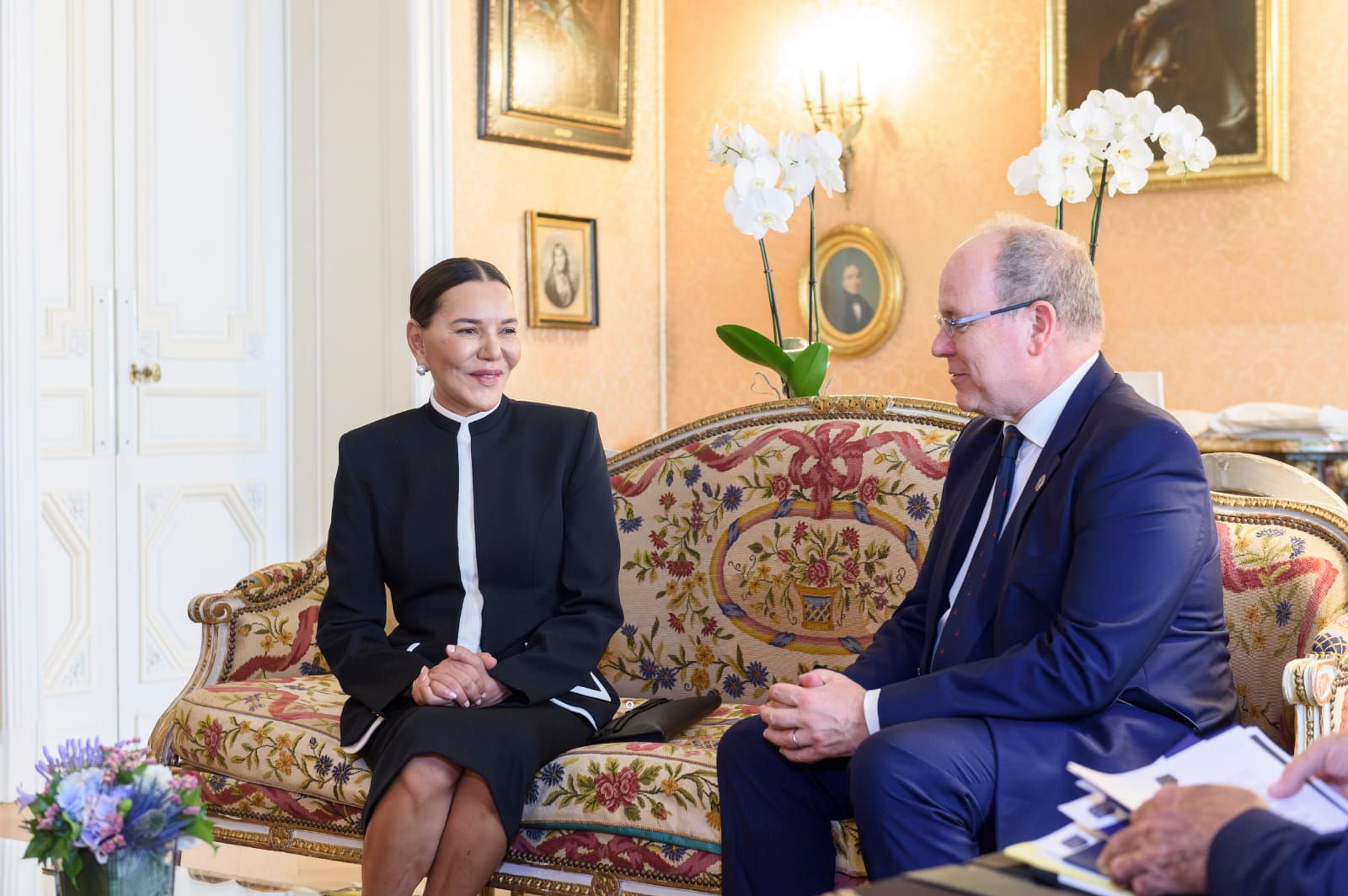
Monaco – June 14th, 2023
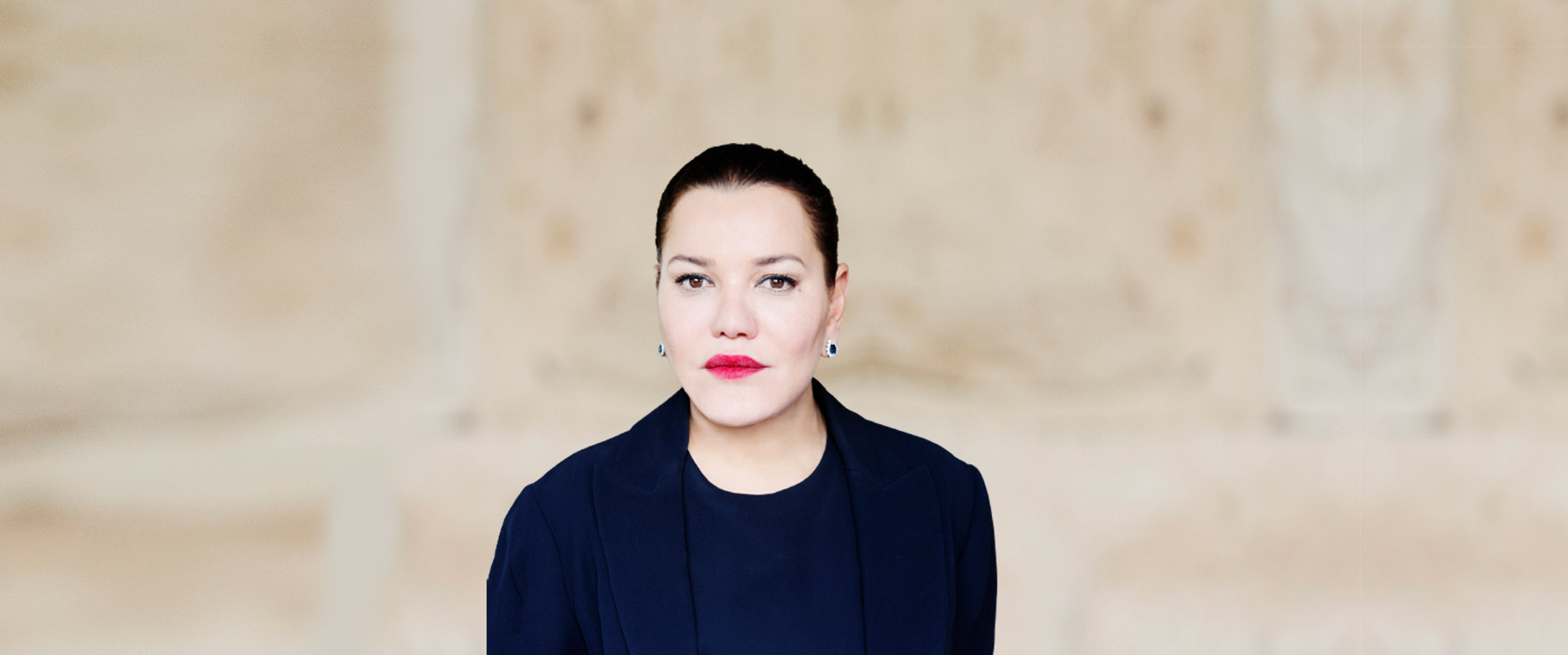
May 17, 2021
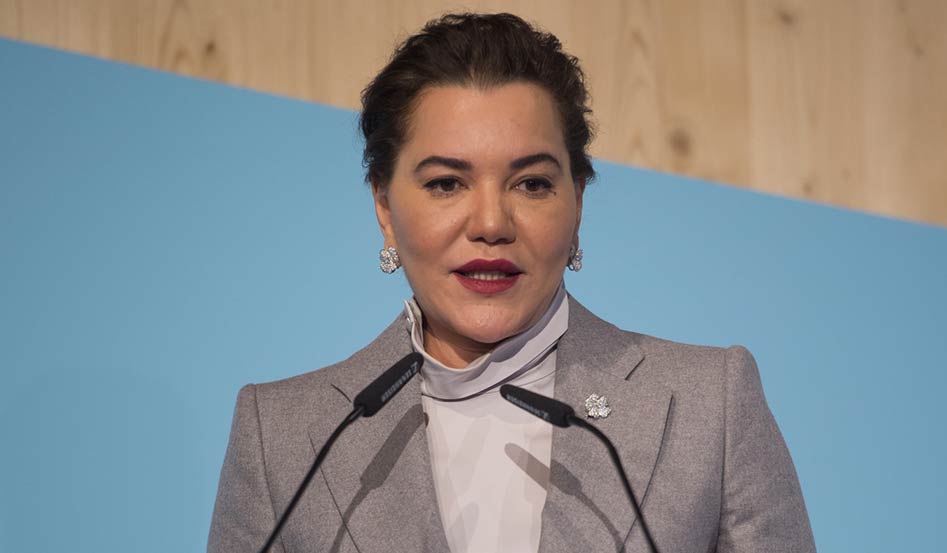
February 3, 2021
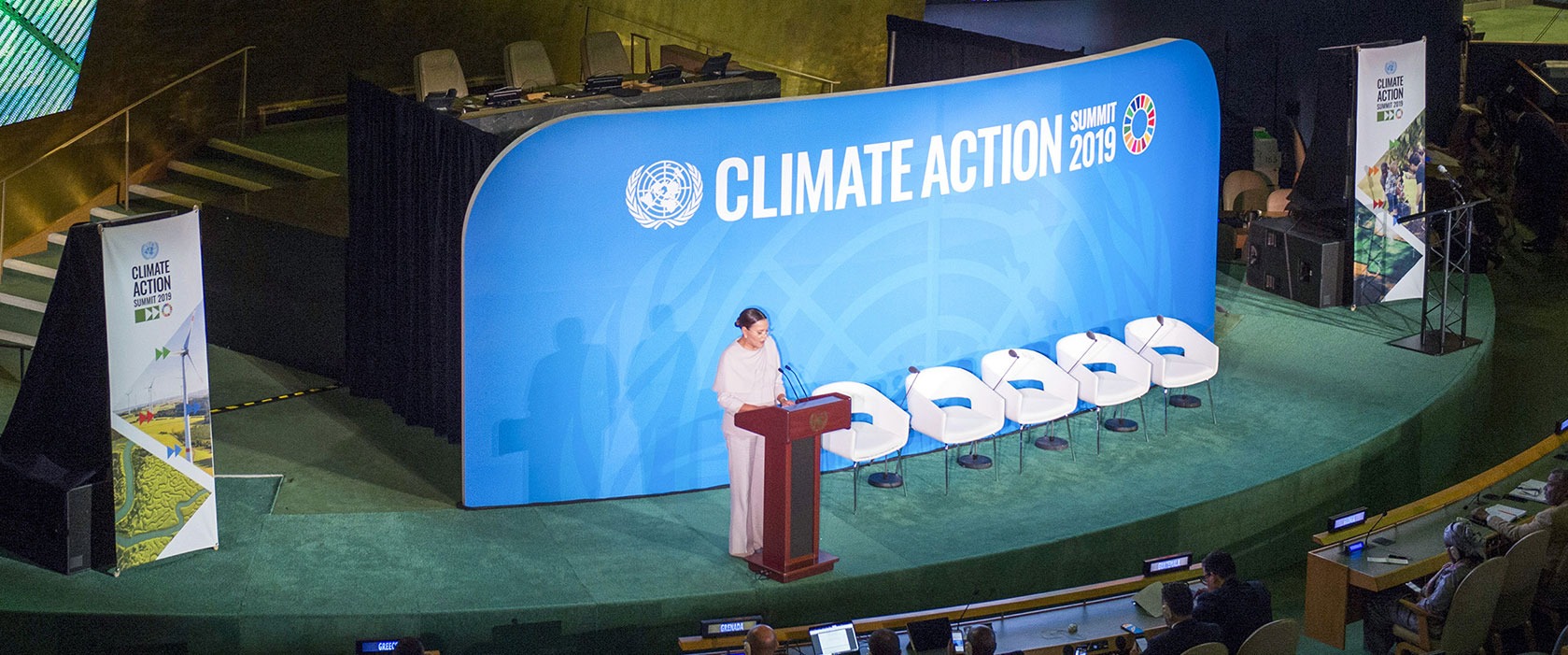
New York – September 23, 2019
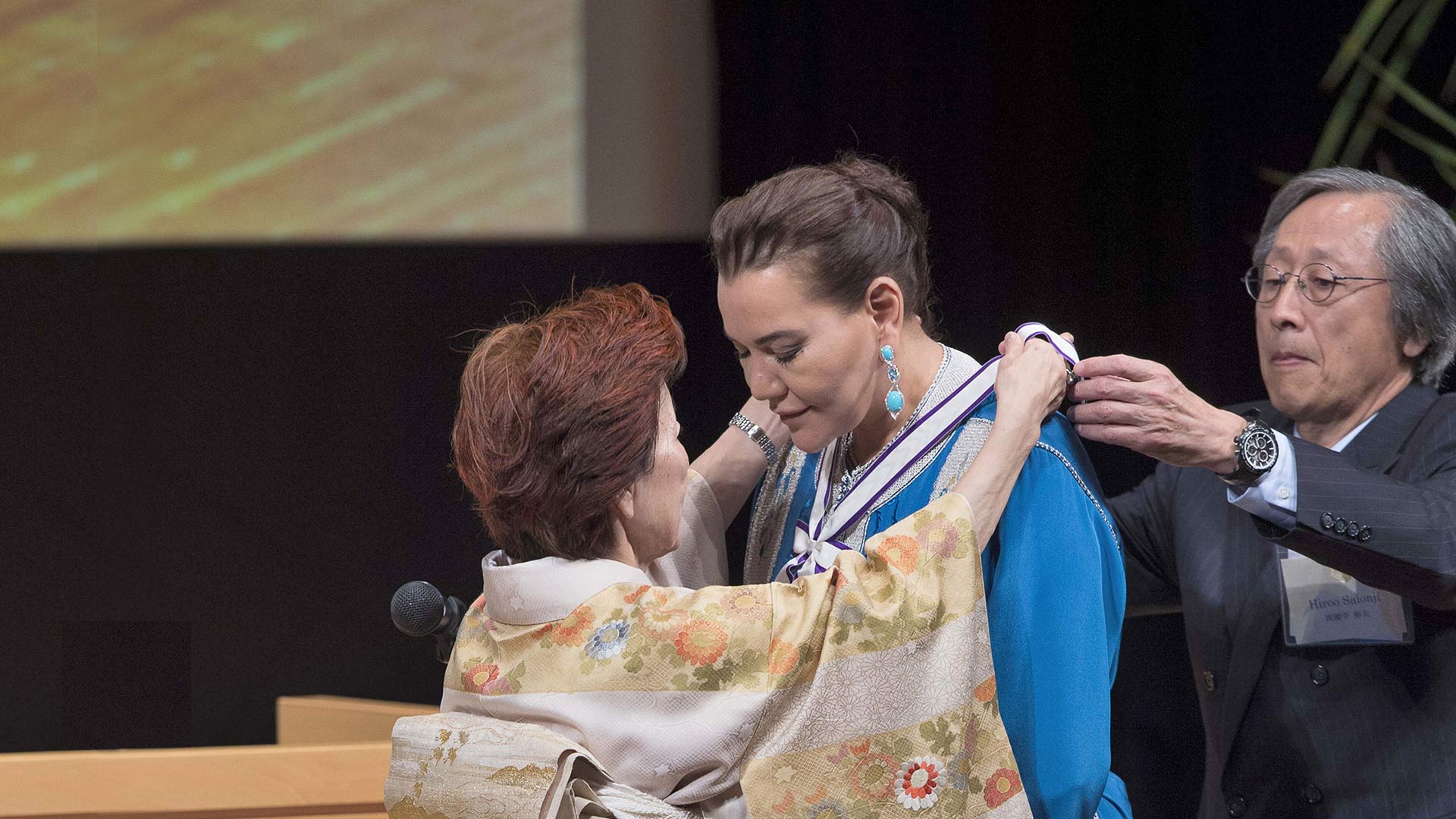
Tokyo – 23 novembre 2018
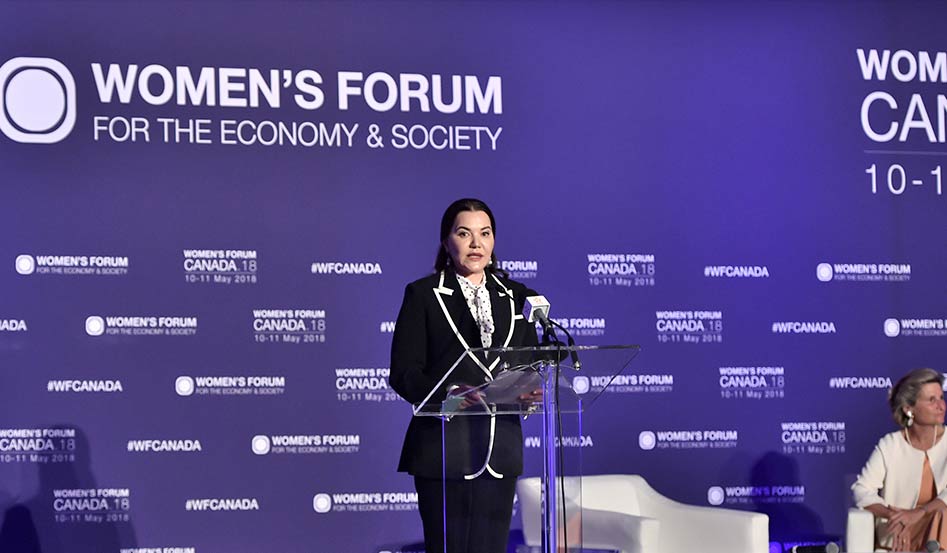
Toronto – May 10,2018
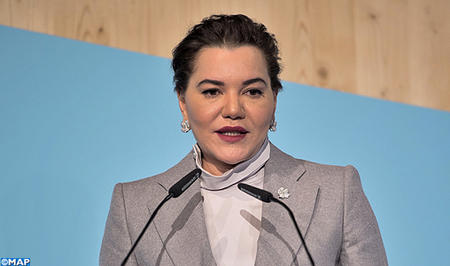
Bonn – 16 November 2017
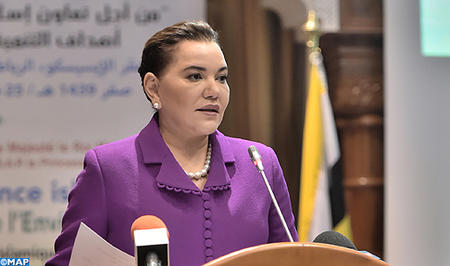
Rabat – October 25, 2017
